Exploring Different Types of Fermented Foods: Recipes and Benefits. Fermented foods have been an integral part of human diets for centuries, cherished not only for their distinct flavors but also for their potential health benefits. From sauerkraut to kimchi, kefir to kombucha, the world of fermented foods is diverse and captivating. In this article, we will delve into the realm of fermented foods, exploring various types, their recipes, and the numerous benefits they offer.
The captivating world of fermented foods is a fusion of ancient traditions and modern culinary expertise. These foods undergo a transformative process that not only extends their shelf life but also enhances their flavors and introduces health-promoting properties.
Table of Contents
ToggleWhat Are Fermented Foods?
Fermentation is a natural metabolic process where microorganisms such as bacteria, yeast, or fungi convert sugars and carbohydrates into alcohol or organic acids. This transformation not only acts as a preservative but also results in the tangy, unique flavors that fermented foods are known for.
The Art of Fermentation
Fermentation is an art that requires a delicate balance of ingredients, time, and environmental conditions. The magic happens as microorganisms work their wonders under controlled conditions, giving rise to foods that are not only delicious but potentially beneficial for our well-being.
Also Read: Probiotic-Rich Fermented Foods for a Stronger Immune System
Popular Types of Fermented Foods
4.1 Sauerkraut
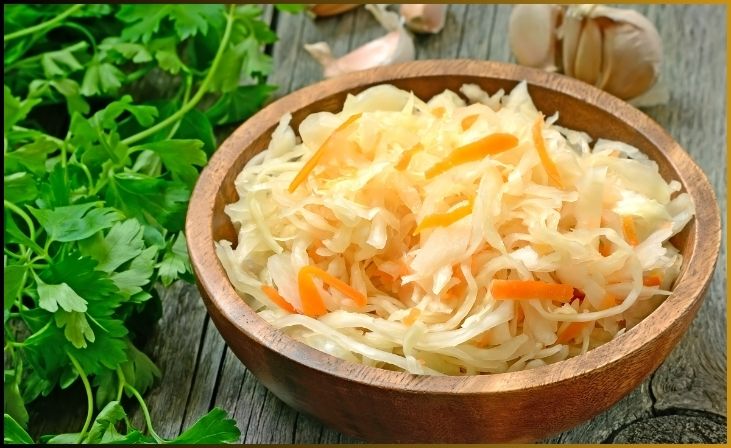
Delve into the heritage of German cuisine with sauerkraut, a classic dish crafted through the fermentation of finely chopped cabbage with lactic acid bacteria. The transformative fermentation process infuses the cabbage with a delightful sourness, yielding a versatile condiment that not only tantalizes the taste buds but also boasts a nutritional powerhouse. Laden with vitamins and probiotics, sauerkraut becomes more than a simple condiment; it’s a flavorful and health-enhancing addition to a variety of dishes. Embrace the traditional art of fermentation as sauerkraut emerges as a culinary gem, offering both a tangy zest and a boost to gut health.
4.2 Kimchi

Originating from Korea, kimchi is a dynamic fusion of fermented vegetables, predominantly cabbage and radishes, seasoned with an array of spices. This fiery and flavorful dish not only ignites the palate but also serves as a nutritional powerhouse. Abundant in vitamins A and C, kimchi stands as a vibrant and health-enhancing delicacy. Beyond its bold taste, the fermentation process infuses kimchi with healthy bacteria, contributing to gut health and making it a doubly enriching addition to your culinary repertoire. Explore the rich tradition of Korean cuisine with kimchi, where every fiery bite is a celebration of taste and well-being.
4.3 Kefir
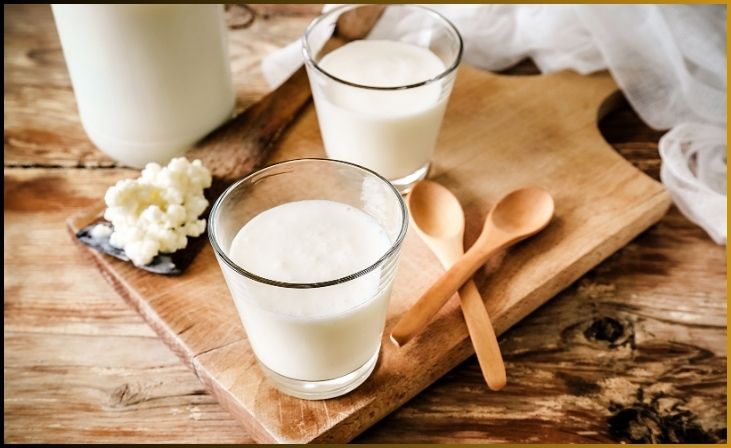
Indulge in the velvety delight of kefir, a fermented dairy product renowned for its creamy consistency and tangy flavor. Beyond its exquisite taste, kefir is a powerhouse of probiotics, contributing to digestive health. What makes it even more versatile is its adaptability to non-dairy alternatives such as coconut water or almond milk, catering to a broader range of dietary preferences. Whether enjoyed on its own or incorporated into smoothies and recipes, kefir stands as a delicious and nutritious addition to your culinary choices. Immerse yourself in the world of fermented delights with kefir, where each sip is a celebration of both taste and well-being.
4.4 Kombucha
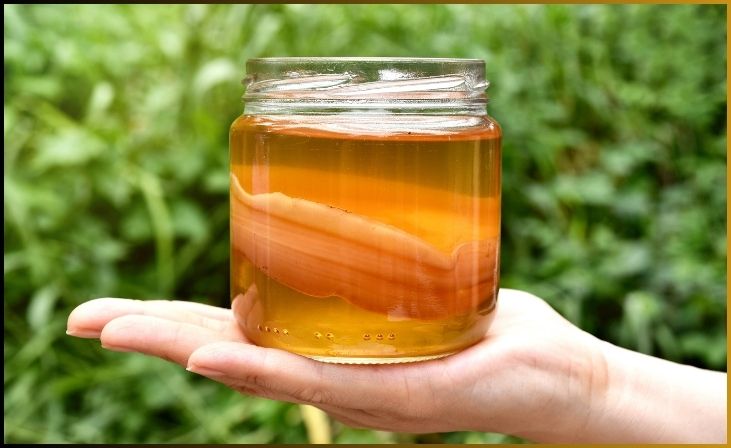
Experience the effervescent charm of kombucha, a delightful beverage characterized by its fizzy, slightly sweet, and tart profile. Crafted through the fermentation of sweetened tea with a SCOBY (symbiotic culture of bacteria and yeast), kombucha not only tantalizes the taste buds but is also revered for its potential detoxifying and gut-loving properties. The symbiotic dance of bacteria and yeast transforms simple ingredients into a refreshing elixir, making kombucha a sought-after choice for those seeking a flavorful and health-conscious drink. Dive into the world of kombucha, where each sip offers a symphony of tastes and a boost to your well-being.
4.5 Yogurt

Explore the world of yogurt, a widely recognized fermented dairy product celebrated for its rich taste and health benefits. Packed with probiotics, yogurt becomes a digestive ally, nurturing a healthy gut environment. From the simplicity of plain yogurt to the indulgence of fruit-infused varieties, this versatile dairy delight caters to a spectrum of taste preferences. The harmonious blend of fermentation and flavor transforms yogurt into more than just a snack; it’s a nutritious and delicious addition to your daily diet. Immerse yourself in the creamy goodness of yogurt, where each spoonful is a journey into both taste and well-being.
4.6 Tempeh

Hailing from Indonesia, tempeh emerges as a protein-rich culinary gem crafted from fermented soybeans. With a distinctive nutty flavor and firm texture, tempeh has earned acclaim as a popular and versatile meat substitute. The fermentation process not only enhances its nutritional profile but also contributes to a depth of taste that elevates various dishes. Tempeh’s adaptability in absorbing flavors makes it a culinary canvas, seamlessly integrating into stir-fries, sandwiches, and more. Embrace the Indonesian tradition with tempeh, where each bite not only satisfies the taste buds but also delivers a wholesome dose of plant-based protein.
4.7 Miso
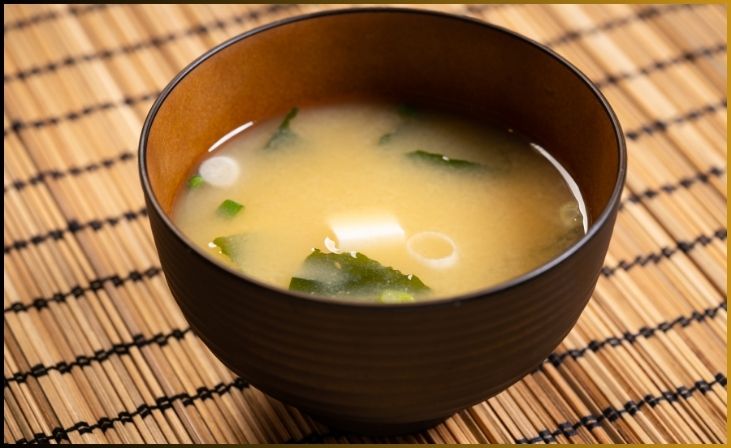
Rooted in Japanese culinary tradition, miso stands as a revered paste crafted through the fermentation of soybeans with salt and koji, a unique fungus. This age-old process results in a versatile ingredient that infuses dishes with a savory depth, enhancing their flavor profile. Celebrated for its umami richness, miso becomes a staple in Japanese cuisine, offering a distinctive and complex taste. Whether incorporated into soups, marinades, or dressings, miso elevates the culinary experience, embodying the essence of both tradition and innovation. Immerse yourself in the world of Japanese flavors with miso, where each dollop brings a harmonious balance of saltiness and umami to your dishes.
4.8 Pickles
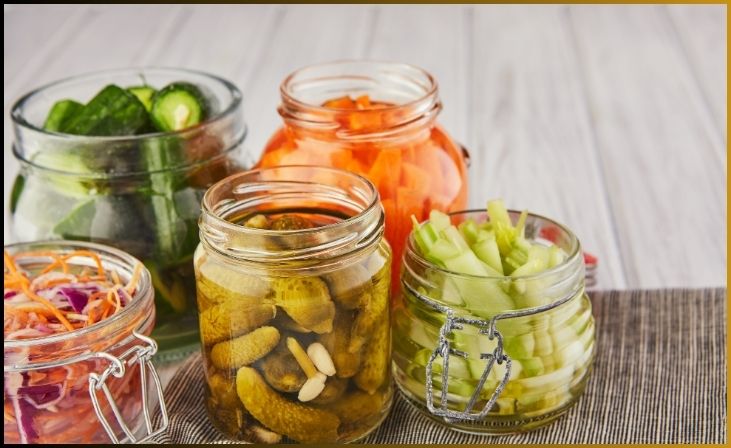
Discover the world of pickles, where cucumbers undergo a transformative journey in brine or vinegar solution through lactic acid fermentation. This ancient preservation method not only imparts a delightful crunch but also introduces the potential for probiotics if prepared through fermentation. The marriage of crispiness and tanginess makes pickles a beloved addition to sandwiches, salads, and snacks. Dive into the savory allure of pickles, where each bite is a symphony of texture and flavor, heightened by the natural alchemy of fermentation. Embracing a time-honored tradition, pickles showcase how simple ingredients can become culinary treasures through the magic of fermentation.
Quick Link: 5 Healthy Fermented Foods Recipes with Probiotics
Don't just scroll, subscribe!
BuzzTrail's unique web-stories are the cure for boredom you've been waiting for.
Recipes for DIY Fermented Delights
5.1 Homemade Sauerkraut
Embark on the journey of making sauerkraut at home, a surprisingly simple process that yields delicious results. Begin by shredding cabbage and then, with a touch of salt, massage it to release its natural juices. Pack the cabbage tightly into a jar, creating the perfect environment for fermentation. Now, let nature and time take the reins, allowing the transformative magic of fermentation to unfold. This hands-on yet straightforward method not only preserves the freshness of the cabbage but also unlocks a world of flavor, turning your kitchen into a haven for homemade sauerkraut. Embrace the simplicity and satisfaction of crafting this traditional dish with just a few steps and a touch of patience.
5.2 Easy Kimchi at Home
Embark on a personalized culinary adventure by crafting your own kimchi, where you have the creative freedom to tailor the spice level to your liking. Begin by mixing fresh vegetables with a harmonious blend of spices, creating a symphony of flavors. Patience is key as you allow the amalgamation of ingredients to develop and intensify over the course of a few days. This hands-on process not only lets you control the heat but also ensures a unique and vibrant taste experience. Dive into the world of homemade kimchi, where each batch becomes a reflection of your palate and a celebration of the art of fermentation. Enjoy the journey of creating a personalized kimchi that perfectly suits your spice preferences.
5.3 DIY Tangy Kefir
Embark on the process of creating kefir, a simple yet rewarding venture that begins with combining kefir grains with either milk or a dairy-free alternative. As the mixture ferments, the magical dance of kefir grains introduces a tangy twist, transforming it into a probiotic-rich elixir. The fermentation journey unfolds, enhancing both the taste and nutritional value of the drink. Whether you opt for a traditional dairy approach or explore the versatility of non-dairy options, creating kefir at home is a delightful and customizable experience. Revel in the joy of crafting a tangy, gut-friendly drink that seamlessly blends the art of fermentation with the simplicity of homemade goodness.
5.4 Brewing Your Own Kombucha
Embark on the journey of crafting your own kombucha by starting with the preparation of sweetened tea. Add the SCOBY (symbiotic culture of bacteria and yeast) to the mix, initiating the fermentation process. Place the concoction in a dark, well-ventilated spot, allowing the symbiotic dance of bacteria and yeast to work its magic. Patience is key during the week-long fermentation period, as the tea transforms into a fizzy, slightly sweet, and tart delight. Once the alchemy is complete, savor the satisfaction of enjoying your homemade kombucha—a testament to the art of fermentation and the simplicity of creating a refreshing beverage in your own kitchen.
5.5 Crafting Creamy Yogurt
Homemade yogurt by starting with the simple process of heating milk and allowing it to cool down. Introduce a yogurt culture to the cooled milk, initiating the fermentation process that transforms it into a creamy delight. During the incubation period, the magic unfolds as the yogurt thickens, creating a luscious texture. If desired, strain the yogurt for an even creamier consistency, enhancing the richness of your creation. Revel in the satisfaction of creating your own yogurt at home, where each spoonful is a testament to the ease and joy of fermentation. Dive into the creamy goodness of homemade yogurt, a delicious and nutritious addition to your culinary repertoire.
Health Benefits of Fermented Foods
6.1 Gut Health and Probiotics
Delve into the world of fermented foods, a treasure trove of probiotics that serve as a nourishing elixir for your gut, providing a flourishing community of beneficial bacteria. The symbiotic dance of these microbes not only enhances digestion but also plays a pivotal role in fortifying your immune system. A thriving and healthy gut, supported by the probiotics in fermented foods, becomes a cornerstone for overall well-being. As you incorporate these culinary delights into your diet, you embark on a journey of holistic health, where the natural alchemy of fermentation contributes to a harmonious balance within your body. Elevate your culinary choices and nurture your gut health with the probiotic richness found in the diverse world of fermented foods.
6.2 Enhanced Nutrient Absorption
Unlock the nutritional potential of your food through the transformative power of fermentation. This process serves as a catalyst, breaking down compounds that might inhibit the absorption of essential nutrients. As a result, vitamins and minerals become more bioavailable to your body, enhancing their absorption and utilization. Fermentation acts as a culinary alchemist, not only imparting unique flavors but also amplifying the nutritional value of the ingredients. By incorporating fermented foods into your diet, you engage in a holistic approach to nutrition, where the bioavailability of nutrients is optimized, contributing to overall health and well-being. Embrace the enriching journey of fermentation, where the alchemical transformation benefits not only your taste buds but also your body’s ability to absorb vital nutrients.
6.3 Potential Immune System Support
Discover the immune-boosting potential of fermented foods, where probiotics take center stage in supporting your body’s defense mechanisms. These beneficial bacteria, abundant in fermented foods, play a crucial role in fortifying your immune system. Through their interaction with the gut, probiotics contribute to a balanced and responsive immune function, aiding your body in its defense against illnesses. The symbiotic relationship between probiotics and the immune system creates a dynamic harmony that enhances your overall resilience.
As you incorporate fermented delights into your diet, you not only indulge in unique flavors but also empower your body to better fend off potential health challenges. Embrace the proactive role of probiotics in fermented foods, cultivating a robust immune system that becomes a cornerstone of your well-being.
6.4 Lactose Digestion
Delve into the world of fermented dairy products, where the magic of fermentation brings forth not just delightful flavors but also enzymes that aid in lactose digestion. In particular, yogurt stands out as a dairy delight with the potential to become more tolerable for those with lactose sensitivity. The fermentation process introduces enzymes that assist in breaking down lactose, rendering the yogurt easier on the digestive system. As a result, individuals with lactose sensitivity can savor the creamy goodness of yogurt without the discomfort often associated with lactose-containing dairy. Embrace the dual benefits of flavor and digestibility found in fermented dairy products, offering a delicious solution for those seeking a more easily digestible dairy option.
6.5 Rich in Enzymes
Embark on a journey into the nutritional richness of fermented foods, where enzymes take center stage as a natural and abundant resource. These enzymes, crafted through the transformative process of fermentation, play a pivotal role in assisting various biochemical reactions within the body. Serving as catalysts, they enhance the breakdown of complex compounds, rendering nutrients more accessible for absorption. The presence of these natural enzymes in fermented foods contributes not only to their unique flavors but also to their potential digestive benefits.
As you incorporate fermented delights into your diet, you tap into a holistic approach to nutrition, where the enzymatic bounty supports overall well-being and digestive harmony. Embrace the nutritional symphony orchestrated by fermentation, where enzymes become the unsung heroes of flavor and health.
Conclusion: Different Types of Fermented Foods: Recipes and Benefits
In conclusion, the world of fermented foods is a treasure trove of flavors, traditions, and health benefits. From the tangy sauerkraut to the spicy allure of kimchi, and the probiotic-rich kefir to the effervescence of kombucha, each type brings its unique essence to the culinary table. The art of fermentation not only tantalizes our taste buds but also offers a myriad of advantages for our well-being.
FAQs
What exactly are fermented foods?
What exactly are fermented foods?
Fermented foods are those that undergo a natural process where microorganisms transform sugars into alcohol or organic acids, resulting in unique flavors and potential health benefits.
Are all fermented foods probiotic?
Are all fermented foods probiotic?
While many fermented foods contain probiotics, not all are rich in these beneficial bacteria. Look for live cultures or active probiotics on labels to ensure their presence.
Can I make fermented foods at home safely?
Can I make fermented foods at home safely?
Yes, you can create your own fermented foods at home. Follow proper recipes, maintain hygiene, and monitor the fermentation process to ensure safety and desired results.
Exist any dangers involved in eating foods that have undergone fermentation?
Exist any dangers involved in eating foods that have undergone fermentation?
Generally, fermented foods are safe for consumption. However, individuals with compromised immune systems or specific health conditions should consult a healthcare professional before consuming large quantities.

